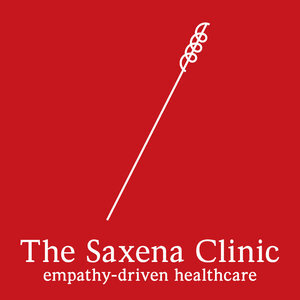Walking wounded: a strategy
(What I had for breakfast this morning: jasmine rice, sauteed swiss chard and an over-easy egg fried up in coconut oil.)
When I was 19, my mother died of a fast-acting cancer. Five months before she died, we'd gotten the diagnosis; I was just about to take my freshman-year finals. I packed up my dorm room and flew home to Honolulu, where my father and sister and I cared for her through her illness.
My father, who had never even dated anyone before meeting my mother, was devastated and disoriented by her death, and spent the years after her death gradually neglecting his own health more and more. I came home again when I was 24 to help him recover from a triple bypass. We fought during that time, more fiercely than we ever had, because we were both afraid he would die.
Just months later I entered a master's program in acupuncture and traditional Chinese medicine. I was done watching people I love suffer. I was going to learn how to fix it all, using this remarkable, wide-ranging modality. I was going to teach everyone how to prevent every kind of pain and illness. I couldn't wait.
In my fourth and final year of school, I moved from New York to San Diego. There I finished my clinical hours, including one rotation at the San Diego Hospice. And there I learned the most valuable lesson of all my time in school: Not only can we not fix everyone's pain--we aren't supposed to.
What we are supposed to do--all of us, whether we are working in healthcare or just trying to be helpers in the world--is our best to ease suffering. Everyone we see is walking wounded. Some of the wounds are more obvious, and some are completely invisible. The challenge isn't "How do I fix this person's wounds?" but rather "How do I accept that I can't fix these wounds and still make this person's life easier?"
In our work as acupuncture interns in the hospice setting, we were not trying to treat anyone's illness--just to bring comfort. Sometimes our entire goal would be to help a patient sleep for a couple of hours. Sometimes it would be to help them have a bowel movement. Sometimes we would try to help calm anxieties, manage a little bit of pain, or ease breathing. Everything we did was a small, small measure of comfort within the enormity of impending death.
And it still mattered. All those tiny measures counted. A few minutes of pain relief or unrestricted breathing might mean a few more coherent, peaceful minutes with loved ones. An hour of sleep instead of struggling is a gift in a time of crisis. I couldn't save any lives in my rotation, any more than I could save my mother from pancreatic cancer, any more than I could save my father from the kidney failure that eventually ended his life. It didn't matter that I was at the end of an arduous degree program, that I'd banked thousands of clinical and classroom hours by that point. Nothing I had learned could cure the patients at the hospice, not even the ones I'd grown to love. I couldn't save anyone. I had to be okay with that.
That's a lesson I still carry around with me, one I'm still trying to integrate. I am an acupuncturist with a lot of experience in both Eastern and Western medicine. I am smart, resourceful, and educated. And I still get sick. My kid still gets sick. My husband and my sister and my friends and everyone I love still get sick, and hurt, and stressed. Nothing I've learned, it turns out, can change that. Nothing I've learned prevented the miscarriage that left me weeping on ultrasound tables while searching the grainy images of my empty uterus. None of it prevented my blinking nervously in the tube of a CAT scan machine while it thundered all around me. None of it enables me to help the people I love stay in this county, where a housing shortage drastically exacerbated by wildfires has resulted in unbelievable costs and competition for a place to live. None of it has taught me how to reunite children separated from their parents at the border, or how to prevent that separation from happening.
All I can do is what I can do. All you can do is what you can do.
Knowing, then, that there is only so much we can do--knowing that we are powerless to fix everything for everyone--let's just do the best we can. We all have skills that can be used to bring comfort, whether we learned them in school or by watching the examples of kind people around us. None of us can fix everything or everyone. But if we commit to creating comfort and ease where we can, if we can notice suffering and bringing our skills to bear when we see it, if we are as open-hearted as we can possibly allow ourselves to be--we can do a lot.
Step one: accept that we're all walking wounded. Step two: accept that we can't heal all the wounds. Step three: do our best anyway, and forgive ourselves for what we can't do.

